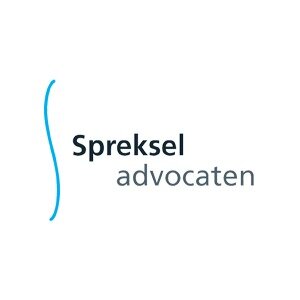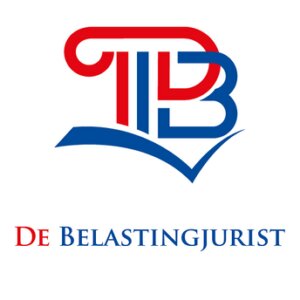Best Project Finance Lawyers in Netherlands
Share your needs with us, get contacted by law firms.
Free. Takes 2 min.
Or refine your search by selecting a city:
List of the best lawyers in Netherlands
About Project Finance Law in Netherlands
Project finance is a specialized area of law and finance focusing on the funding of long-term infrastructure and industrial projects based on the projected cash flows of the project rather than the balance sheets of its sponsors. In the Netherlands, project finance commonly supports sectors such as energy, transport, utilities, and public infrastructure. The structure typically involves complex contractual arrangements, several stakeholders, government bodies, and strict regulatory compliance. Dutch law provides a robust legal framework that makes the jurisdiction attractive for both domestic and international project finance deals.
Why You May Need a Lawyer
Project finance transactions are highly complex and involve multiple parties, including project sponsors, lenders, contractors, and public authorities. A lawyer specializing in project finance can help in several scenarios:
- Structuring and negotiating project finance transactions
- Drafting and reviewing contracts, loan agreements, and security documents
- Assisting with regulatory compliance, permits, and licenses
- Providing legal due diligence and risk assessment
- Advising on public-private partnerships (PPP)
- Resolving disputes between stakeholders
- Ensuring adherence to environmental, tax, and competition laws
- Handling cross-border aspects and foreign investment regulations
Legal expertise is vital to address risks, protect your interests, and ensure that the project moves forward smoothly and lawfully.
Local Laws Overview
Dutch project finance law combines local regulations, EU legal requirements, and international best practices. Key aspects include:
- Contract Law: The Dutch Civil Code governs contractual relationships, including those in project finance. Parties enjoy significant contractual freedom.
- Security Interests: Dutch law allows for various security interests such as pledges and mortgages to protect lenders. Perfection of security interests often requires proper registration.
- Permitting and Licensing: Projects in sectors like energy and construction require several permits from local and national authorities, including environmental and zoning approvals.
- Public-Private Partnerships: Dutch authorities often engage in PPPs. These are governed by public procurement and concession laws, which ensure transparency and competitiveness.
- Taxation: Favorable tax regimes may be available for certain projects, but careful tax planning and compliance are essential.
- EU Law: As a member of the European Union, the Netherlands is subject to EU directives on procurement, competition, and environmental protections.
Navigating these requirements demands a thorough understanding of both Dutch law and the commercial realities of large-scale projects.
Frequently Asked Questions
What is project finance in the context of the Netherlands?
Project finance is a method of raising funds for large-scale and long-term infrastructure projects by using the projected cash flows generated by the project itself rather than relying on the assets or creditworthiness of the project sponsors.
What sectors typically use project finance in the Netherlands?
Project finance in the Netherlands is commonly used in renewable energy (such as wind, solar, and biomass), infrastructure (roads, bridges, and rail), water treatment, and public buildings.
What are the typical steps involved in a Dutch project finance transaction?
Key steps include project structuring, securing permits and licenses, negotiating contracts, arranging financing, establishing security interests, compliance checks, financial close, and ongoing monitoring.
Are there legal requirements for foreign investors in Dutch project finance?
Foreign investors can participate in project finance deals, but may face additional requirements such as compliance with foreign investment screening, tax regulations, and adherence to EU competition law.
What type of security can lenders obtain in Dutch project finance?
Lenders can obtain security such as mortgages on real estate, pledges on shares or receivables, and assignments of contractual rights. Correct registration and perfection are important for enforceability.
How are disputes typically resolved in project finance deals?
Most project finance contracts specify arbitration or Dutch court jurisdiction for resolving disputes. The Netherlands is known for its reliable and efficient legal system.
What role do environmental permits play in Dutch project finance?
Obtaining the right environmental permits is crucial and often a condition precedent for project financing, as non-compliance can halt or delay a project.
What is the role of public-private partnerships in Dutch infrastructure?
PPPs play a significant role. The government collaborates with private entities for financing, building, and operating infrastructure projects, with established legal procedures for procurement and concession.
How does Dutch law address risk allocation in project finance?
Risk is typically allocated through detailed contracts, specifying the responsibilities and liabilities of each party, including construction risks, operational risks, and force majeure events.
Can a project finance lawyer also assist with ongoing compliance and monitoring?
Yes, lawyers often help clients comply with reporting obligations, monitor regulatory changes, and address issues that arise during the life of the project.
Additional Resources
The following resources can be valuable when researching project finance or seeking guidance in the Netherlands:
- Netherlands Enterprise Agency (RVO): Supports entrepreneurs with subsidies, permits, and information on regulations.
- Netherlands Foreign Investment Agency (NFIA): Offers support for foreign investors.
- Dutch Ministry of Finance: Oversees regulatory framework and tax guidelines impacting project finance.
- Dutch Banking Association (NVB): Provides information on local financing standards.
- European Investment Bank (EIB): Active in providing finance for eligible Dutch projects.
Next Steps
If you are considering involvement in a project finance transaction in the Netherlands, consider the following steps:
- Define the scope of your project and identify key stakeholders.
- Collect essential documents such as business plans, financial models, and permits.
- Consult with a lawyer specialized in project finance to evaluate your needs and navigate local requirements.
- Engage with relevant government bodies or agencies for information and assistance.
- Develop a detailed project timeline and risk management plan.
- Stay informed about updates to local laws and regulations impacting your project.
Taking early legal advice can streamline the process, reduce risks, and improve the chances of a successful project outcome.
Lawzana helps you find the best lawyers and law firms in Netherlands through a curated and pre-screened list of qualified legal professionals. Our platform offers rankings and detailed profiles of attorneys and law firms, allowing you to compare based on practice areas, including Project Finance, experience, and client feedback.
Each profile includes a description of the firm's areas of practice, client reviews, team members and partners, year of establishment, spoken languages, office locations, contact information, social media presence, and any published articles or resources. Most firms on our platform speak English and are experienced in both local and international legal matters.
Get a quote from top-rated law firms in Netherlands — quickly, securely, and without unnecessary hassle.
Disclaimer:
The information provided on this page is for general informational purposes only and does not constitute legal advice. While we strive to ensure the accuracy and relevance of the content, legal information may change over time, and interpretations of the law can vary. You should always consult with a qualified legal professional for advice specific to your situation.
We disclaim all liability for actions taken or not taken based on the content of this page. If you believe any information is incorrect or outdated, please contact us, and we will review and update it where appropriate.
Browse project finance law firms by city in Netherlands
Refine your search by selecting a city.
















